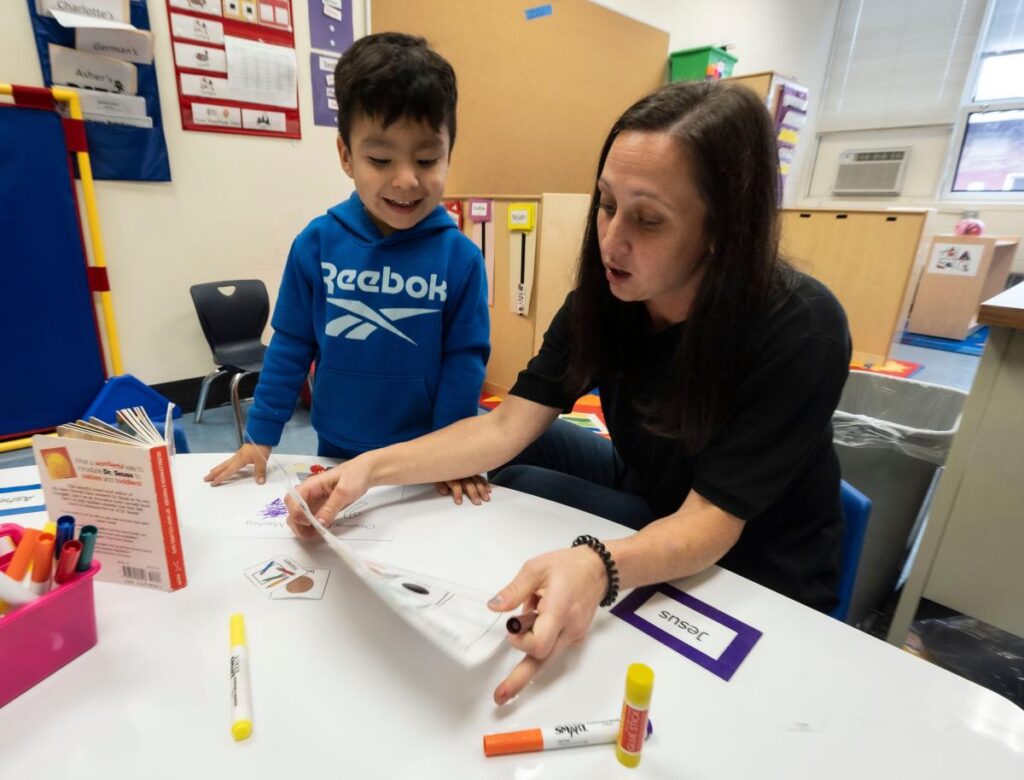An audit conducted by the New York State Comptroller’s Office has unveiled alarming delays in the provision of special education services for preschool-age children. Many children who qualify for such services end up waiting longer than necessary, with some even starting kindergarten without receiving any of the support they require. The New York State Department of Education (SED) is responsible for ensuring that these children get the services they are entitled to; however, the audit highlights that the department has not been effectively tracking how many children are on waitlists, how school districts identify service provisions, or the deficits in services across various districts. This insufficient oversight indicates a serious gap in the state’s education system, leaving vulnerable children without necessary early intervention.
The types of special education services that preschool children might need include essential supports such as speech therapy, occupational therapy, physical therapy, specialized instruction, parent training, and counseling. There is a noted scarcity of providers skilled enough to support all the children who need assistance, leaving many districts unable to supply all necessary services directly due to limited resources. For instance, in October 2022, approximately 40,846 children were enrolled in preschool special education services, yet 83% of school districts reported having waitlists for children aged 3-5 who require such assistance. This situation often leads to children starting kindergarten without having received any pre-K special education services.
Christine Ditrano, the executive director of student services at Rockland BOCES, emphasized that the earlier children can access special education supports, the better the outcomes for the child and society as a whole. Early intervention not only aids children in catching up developmentally but also reduces future remediation costs, making it a financially prudent investment for the state. Various community programs have emerged to help meet the increasing need for special education services. For instance, Rockland BOCES recently established pre-K special education classes to provide more support for families who find it challenging to access necessary services. These programs, supported by local school districts, address the shortages that have left many children without proper educational opportunities.
Mandy Kaufman, a pre-K special education teacher at Rockland BOCES, has witnessed firsthand the positive impact that early education can have on children. She recounts the story of Noah Hernandez-Garcia, a four-year-old who, upon entering the program, had not yet developed verbal skills. Throughout his time in the class, he has significantly progressed, now able to name colors and engage in expressive language. Such progress reinforces the notion that timely access to special education services is critical for child development and readiness to learn. Ditrano notes that fostering interaction among peers and teachers is crucial for these children’s growth, preparing them for future academic challenges.
To qualify for preschool special education services in New York, parents, caregivers, or childcare providers can issue a written request to the local school district if they suspect that a child aged 3-5 has special needs. Under state law, districts are mandated to develop an Individualized Education Program (IEP) within 60 days of a parent consenting to an evaluation, ensuring that children start receiving appropriate services promptly. The SED’s Special Education Quality Assurance (SEQA) office should oversee compliance with this timeline, as well as the transition from Early Intervention services for younger children. However, the audit reveals that SEQA’s reviews are only limited in scope, covering just a fraction of the districts each year, which can leave systemic issues unresolved for extended periods.
Comptroller Thomas DiNapoli lamented the long-term consequences of service delays, emphasizing that early intervention in education can yield substantial benefits for a child’s academic trajectory. The audit points out that without comprehensive information about service availability in different districts, the SED lacks the ability to accurately assess the needs of children requiring special education. The findings stress the urgent need for administrative improvements and adequate resource allocation to ensure that every child in New York receives the timely support they deserve. In summary, the challenges surrounding preschool special education services highlight the critical importance of efficient systems that not only identify needs but also deliver timely support to foster children’s developmental and educational success.

